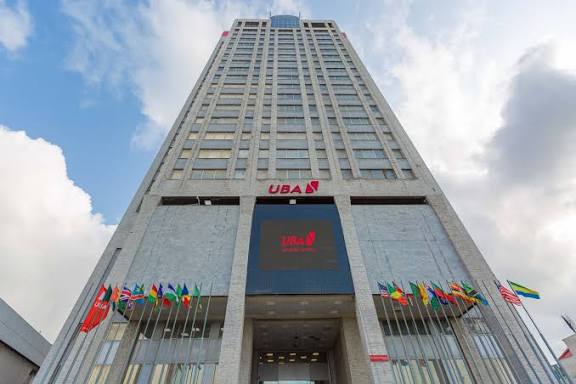
Panic in Lagos: Dramatic Rescue as UBA Bank Branch Catches Fire

Chaos erupted on Lagos Island on the morning of September 16, 2025, when a raging fire engulfed a United Bank for Africa (UBA) branch, leaving staff and customers trapped inside. What unfolded was a scene of desperation and raw humanity, as ordinary people became rescuers in a race against time.
With flames threatening to consume the upper floors of the building, a makeshift ladder was hoisted against the walls. One by one, terrified individuals climbed out of windows, their faces etched with fear as the crowd below shouted directions and encouragement. The ladder swayed dangerously, yet it was the only lifeline for those trapped by the inferno. Bystanders stretched out their arms, steadying the escape route, while others braved the smoke to help the victims down.
The atmosphere was tense, punctuated by cries of alarm and prayers whispered aloud. Onlookers, many recording the moment on their phones, bore witness to an extraordinary display of community courage. Yet the drama also highlighted a grim reality: the glaring absence of immediate professional fire service intervention.
This is not the first time UBA has been caught in such a crisis. In 2018, a fire at its Victoria Island office similarly exposed Nigeria’s fragile emergency infrastructure. Years later, little appears to have changed. Despite budget allocations, the Federal Fire Service continues to grapple with inadequate resources, slow response times, and outdated equipment, leaving citizens to improvise survival in moments of disaster.
For many Nigerians, today’s incident is both a relief and a warning. Relief that lives were saved through collective effort. Warning that without meaningful reform in fire safety and emergency response, it is only a matter of time before luck runs out.
Watch the video below
UBA Bank at Lagos Island is currently on f!re 💔💔
— Oyindamola🙄 (@dammiedammie35) September 16, 2025
pic.twitter.com/vSO3hTLe2z


